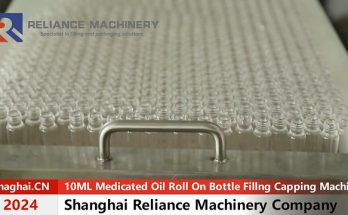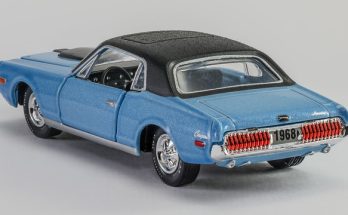
The Benefits of Waterproof Wiring Connectors
Providing superior protection against moisture damage, solder waterproof connectors empower electrical connections to excel even in challenging outdoor environments. They are a must for many applications, including landscape lighting systems, irrigation systems, garden electrical installations and boats and recreational vehicles.
To install a solder waterproof connector, simply heat it with a heat gun and apply the corresponding sealant. This is a time-saving solution that offers several benefits, including:
Durability
Waterproof connectors are designed to protect electrical connections from moisture, reducing the risk of short circuits, corrosion, and other issues caused by water exposure. This is a crucial benefit, especially in outdoor and harsh environments where electrical equipment can be more susceptible to damage.
In addition to protecting against moisture, waterproof wiring connectors also offer enhanced durability. They are built to withstand vibrations, impacts, and extreme temperatures, making them an ideal choice for harsh environment applications. This durability helps ensure that they will last longer than standard connectors and provide long-term reliability for your cable or wire system.
Another important feature of waterproof connectors is that they are designed for quick and hassle-free installation. Many of them feature plug-and-play designs, making it easy for installers to connect and disconnect them without the need for special tools or complex procedures. This can save time and money in the long run, as well as reduce the need for repairs or replacements.
Additionally, most waterproof connectors are manufactured with high-quality materials and advanced sealing mechanisms, ensuring that they will withstand the elements for years to come. These durable features make them an excellent choice for use in a variety of waterproof wiring connectors harsh outdoor environments, including marine, industrial, and agricultural applications.
Moisture Resistant
Moisture can damage electrical connectors and cause oxidation. These damages can affect the mating cycles and reduce the life of the connectors or cables. Waterproof connectors help prevent this by preventing moisture from entering the wires and electric circuits. They can be used in a wide range of applications, including marine, automotive, industrial and outdoor settings.
When installing a waterproof connector, make sure it is compatible with your cable gauge. Different sizes are available for different applications. Also, choose a waterproof connector with a high Ingress Protection (IP) rating to provide additional protection against moisture and dust.
Waterproof connectors can be found in hardware stores and at electrical or electronics suppliers. They are easy to install and can be easily removed if needed for another project. Typically, they come with a receptacle end that plugs into the wire. They are also available in a variety of colors to suit your needs.
A waterproof connector is a great choice for outdoor use, as it can withstand extreme weather conditions. You can also apply a sealant to the connector after it is installed to protect it from moisture and other contaminants. Some good options include silicone sealant or self-fusing electrical tape. When applying a sealant, it is important to disconnect the power from the wires and ensure the area is free of debris and dust.
Corrosion Resistant
Electrical connections can suffer from corrosion when exposed to wet environments. Waterproof connectors offer anti-corrosion protection, preventing damage to the conductors and ensuring optimal performance. These types of connectors are ideal for marine, automotive, and industrial applications, where reliability is non-negotiable.
Corrosion can reduce the expected mating cycle of a connector, which can lead to the premature replacement of wires or cables. Waterproof connectors can withstand harsh environmental conditions, including 1 pin electrical connector humidity, rain, snow, and saltwater, protecting the conductors from corrosion. These connectors also have an IP rating of at least IP65, meaning they are protected against dust ingress and low-pressure water jets.
Solder waterproof wire connectors are easy to use and offer several advantages over traditional wire connections. They have an inspection window and an adhesive-lined insulation that shrinks and bonds to wires when heated, creating a water-resistant seal. These connectors can withstand vibration and extreme temperatures and are perfect for high-speed industrial applications.
To apply a waterproof solder wire connector, start by stripping the end of the cable and exposing the bare copper. Then, insert the stripped wire into the connector. Next, heat the connector with a heat gun to melt the solder inside, and then allow it to cool before inspecting the connection. Finally, apply silicone sealant to the opening of the connector, making sure that it is well sealed against moisture and other elements.
Longevity
When you’re working on an electrical project, you want to be sure your connections will last. Waterproof connectors ensure that electrical and data signals can be carried through wires without damaging them or corroding them over time. Moisture can wreak havoc on electrical connections, particularly in harsh environments that involve high humidity levels and salt air. The corrosion that results can lead to shorts or failures in a circuit. This could be a serious safety issue for homeowners and professional electricians alike.
Using waterproof wiring connectors can help prevent this corrosion, protecting your work and saving you money over the long run. When selecting your waterproof electrical connectors, look for quality products from reputable manufacturers. These brands often have stringent testing procedures in place, ensuring that their products will stand up to the elements. You should also look for a warranty and return policy, as this may offer additional peace of mind.
You will also want to consider the installation method and ease of use when choosing your waterproof connectors. Some types of waterproof connectors require crimping or soldering, while others have a simple twist-on design. If you are working on a project with limited time or space, opt for waterproof connectors that are easy to use and install quickly. You should also look for a range of sizes and wire gauges, as different connectors are suitable for different electrical installations.

